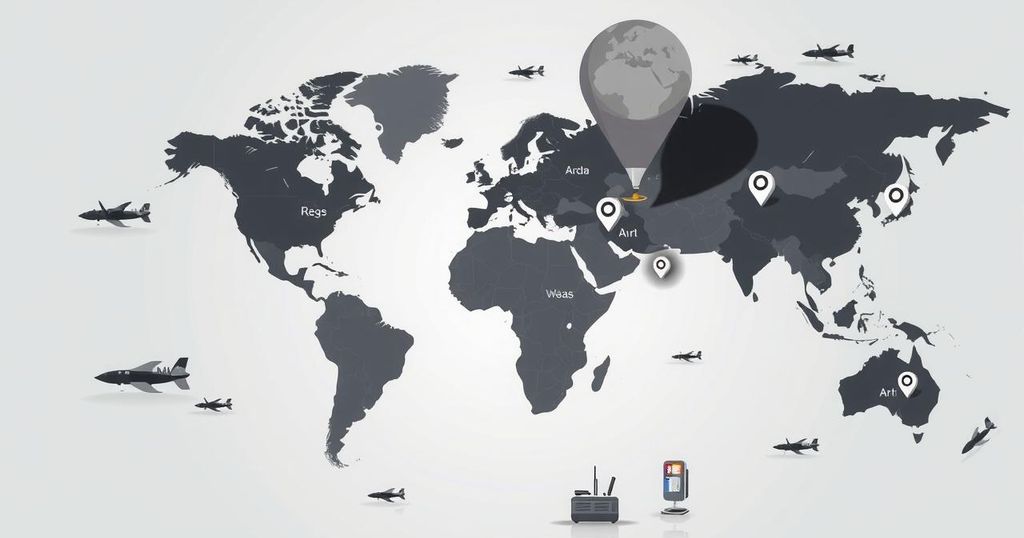Elections
Politics
2024 PRESIDENTIAL ELECTION, ASIA, ATLANTIC, CBS NEWS, CIA, JD VANCE, JOHN RATCLIFFE, MARCO RUBIO, MEDIA, NATIONAL INTELLIGENCE, NATIONAL SECURITY, NORTH AMERICA, POLITICS, PRINCIPALS COMMITTEE, SCOTT BESSENT, TRUMP ADMINISTRATION, UNITED STATES, WASHINGTON, WHITE HOUSE, YEMEN
Sophia Klein
Reckless Security Breach: Trump Officials Discuss Yemen Bombing in Group Chat
A group chat involving high-ranking Trump officials, including Defense Secretary Hegseth and Vice President Vance, discussed plans for military action against Houthi targets in Yemen. The discussion inadvertently included Jeffrey Goldberg, editor of The Atlantic. Concerns were voiced about the risks associated with using informal platforms for sensitive communications. President Trump later confirmed the strikes, compounding criticism regarding operational security.
In a startling revelation, prominent Trump officials, including Defense Secretary Pete Hegseth and Vice President JD Vance, participated in a group chat discussing plans to bomb Houthi targets in Yemen. This chat inadvertently included Jeffrey Goldberg, editor in chief of The Atlantic, who disclosed the incident in a recent article. Goldberg received an unsolicited connection request from an account purportedly belonging to White House National Security Adviser Mike Waltz on March 11. Subsequently, he was added to a chat titled ‘Houthi PC small group,’ which included other high-profile officials such as Secretary of State Marco Rubio and CIA Director John Ratcliffe.
Initially skeptical of the group’s authenticity, Goldberg expressed concerns that this could be a disinformation effort. He articulated disbelief that national security officials would share plans for military action via an unsecured messaging app. The encrypted discussion occurred while the Houthis, a rebel group backed by Iran, threatened maritime trade in the region with ongoing attacks on commercial and military vessels, justifying their actions by citing the war in Gaza.
The officials debated the timing of the imminent military operation during the chat. Vance raised concerns that such action would primarily benefit European interests. He suggested that this might contradict President Trump’s message about European security responsibilities. Vance remarked, “I am not sure the president is aware how inconsistent this is with his message on Europe right now.”
Hegseth acknowledged the concerns raised and revealed operational details about the strikes, including target information and precise timing. Goldberg stated that Hegseth mentioned strikes would begin at 1:45 p.m. ET. Shortly after, explosions were reported in Sanaa, Yemen, confirming the operation’s initiation. Following this, Goldberg observed a stream of congratulatory messages in the group, prompting him to conclude that the chat was indeed legitimate before he left the group.
Later that day, President Trump announced the military action on social media, declaring, “Today, I have ordered the United States Military to launch decisive and powerful Military action against the Houthi terrorists in Yemen.” The episode drew sharp criticism from Democratic Sen. Jack Reed, who called it a major breach of operational security and stated, “The carelessness shown by President Trump’s cabinet is stunning and dangerous.”
The inclusion of an unsolicited participant in discussions regarding a sensitive military operation raises significant concerns about operational security among high-ranking Trump officials. The communication through an informal messaging platform was deemed reckless, especially given the potential risks to American personnel. This incident underscores the importance of maintaining stringent protocols in the conduct of national security operations, and calls for accountability from the administration are already being made.
Original Source: www.cbsnews.com








Post Comment